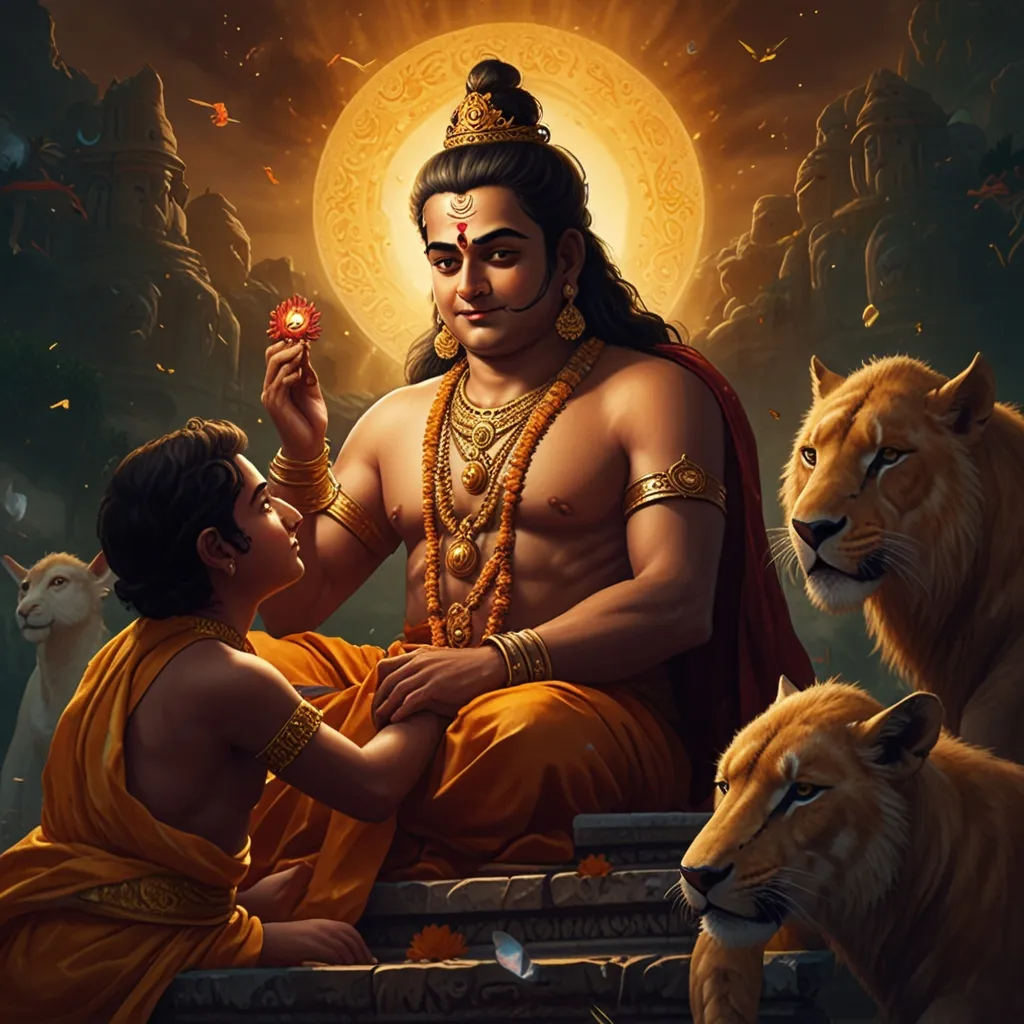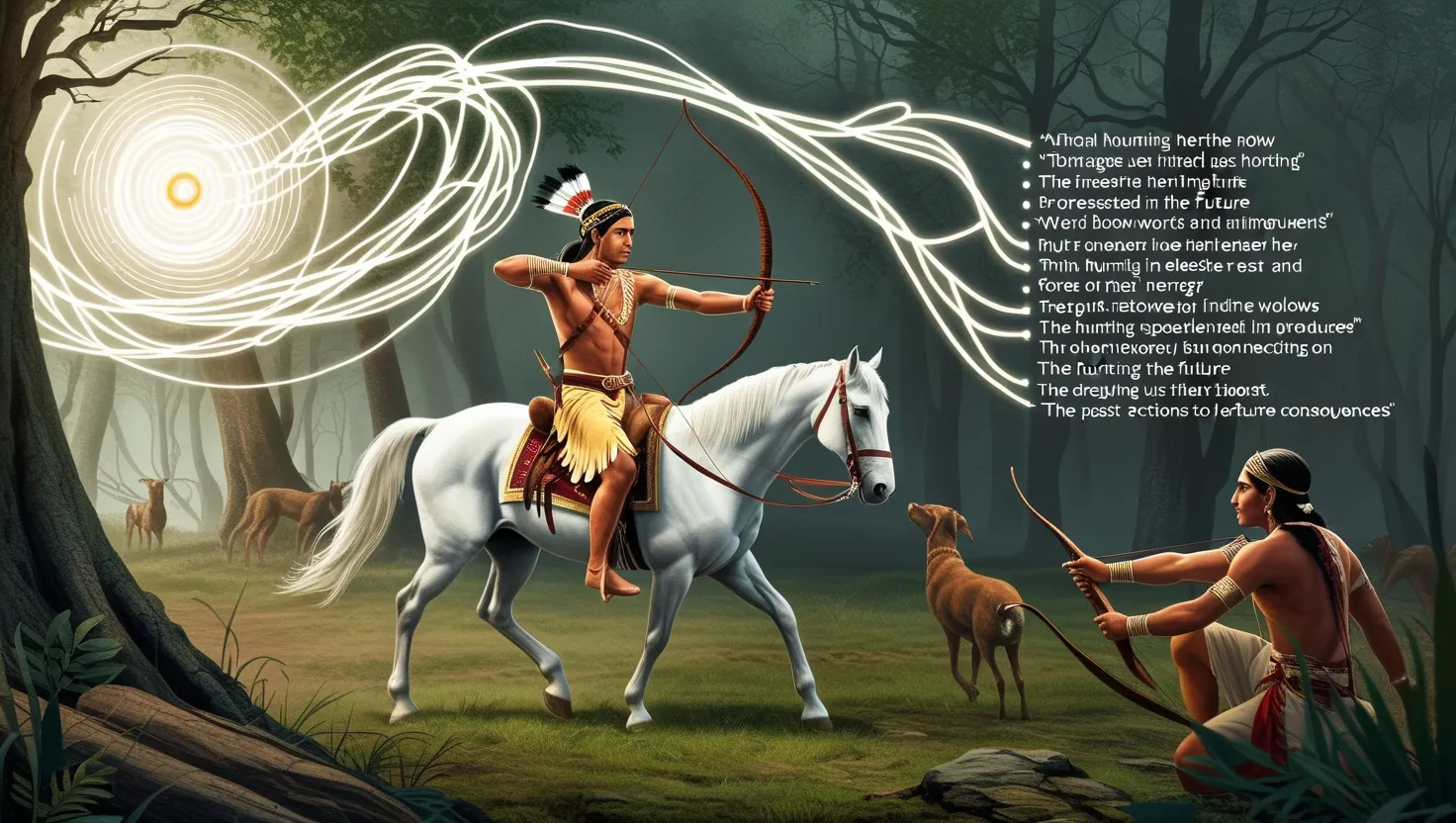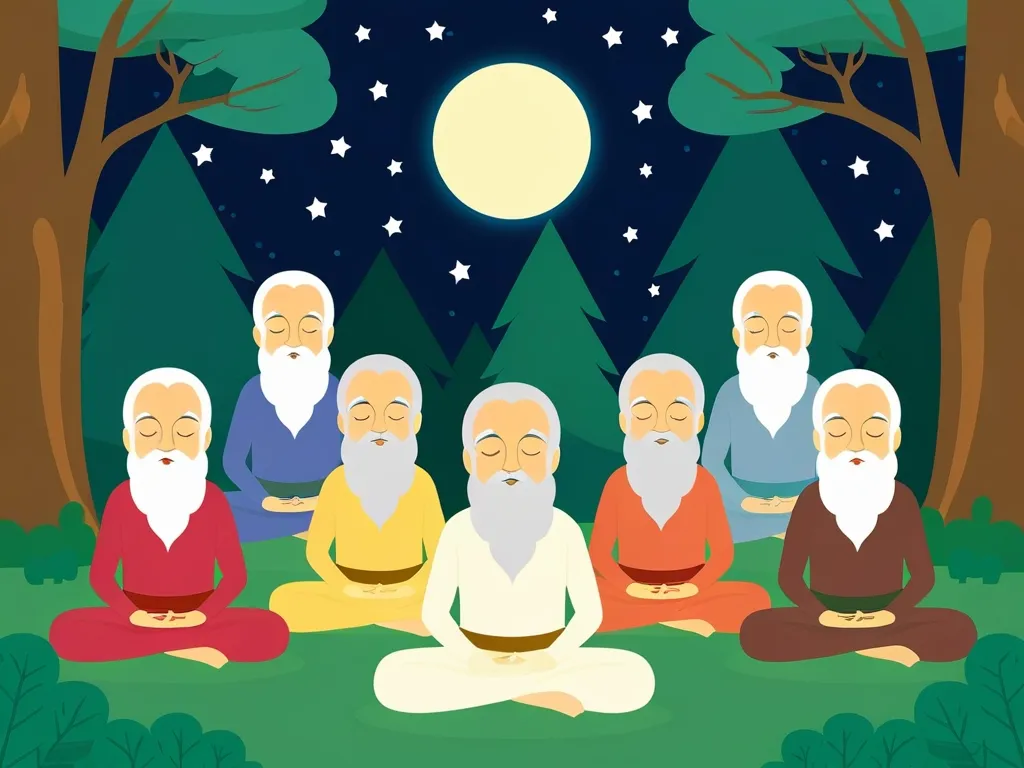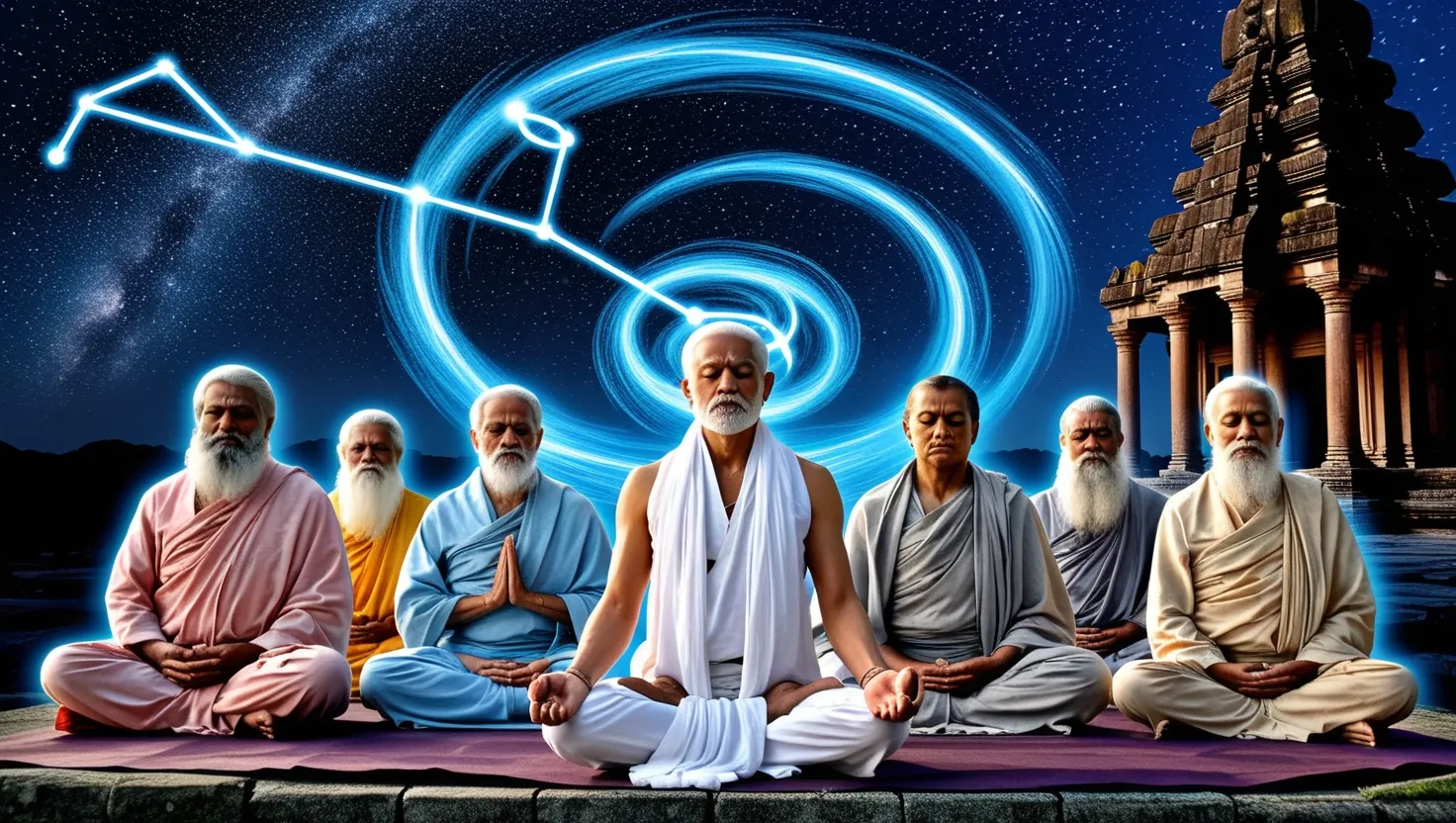Back in the day, in a world wrapped in legends and ancient tales, there was this awesome king named Mahabali. He wasn’t just any king; he was the grandson of Prahlada, who was a big-time devotee of Lord Vishnu. Mahabali, often simply called Bali, ruled with a fairness and kindness that made his kingdom pretty much a paradise. People were genuinely happy, and prosperity was kind of their thing.
Mahabali’s rise to legendary status didn’t happen overnight. After a major setback, he was brought back to life by his guru, Shukracharya, using the totally epic sanjivani mantra. Seriously, this mantra was like an ancient cheat code that could revive the dead. Fueled by a desire to redeem himself, Mahabali sought wisdom and blessings from the Bhargava Brahmins, the descendants of the sage Bhrigu. They performed all sorts of rituals, like the aindra ritual, declaring Mahabali as the world emperor. This was followed by the Visvajit sacrifice, where he had to donate all his wealth. Mahabali, being the generous soul he was, gave away everything he had and in return, he received some seriously cool divine gifts. Picture this: a golden chariot, green horses, a celestial bow, and a killer chainmail chestplate.
With his newfound powers and divine swag, Mahabali didn’t just sit on his throne. He went out and conquered the heavens and the earth. Naturally, the gods started to get a bit antsy, fearing they might end up out of a job. So, they ran to Lord Vishnu for help. Vishnu, being the dude who restores balance in the universe, decided to step in. But rather than a full-blown war, he chose a clever approach. Vishnu took on the form of Vamana, a dwarf Brahmin, to bring Mahabali down a peg without destroying him — because, let’s face it, Mahabali was actually a pretty cool guy.
The real drama unfolded during the ashvamedha sacrifice that Mahabali was hosting to celebrate his victories. Enter Vamana, the modest dwarf Brahmin. Mahabali welcomed Vamana warmly, offered him a seat, and even washed his feet, which was a big sign of respect. When Mahabali asked what Vamana wanted, the dwarf made a seemingly ridiculous request — just three steps of land. Amused and thinking it a joke, Mahabali agreed without a second thought.
But Mahabali’s guru, Shukracharya, smelled a rat. He recognized Vamana for who he really was — Lord Vishnu in disguise. He warned Mahabali, “This isn’t just a kid; it’s Vishnu, and he’ll take everything with his three steps!” But Mahabali, bound by his promise and his honor, wouldn’t back out.
So, Vamana started his little three-step march. With his first step, he took the heavens. With his second, he snagged the earth. Running out of land, Vamana asked where he should place his third step. Aware of his fate, the noble Mahabali offered his own head. Vamana, touched by this act of humility, placed his foot on Mahabali’s head and sent him down to the underworld, or patala.
Even in exile, Mahabali’s story didn’t end there. Lord Vishnu granted him a yearly visit back to his kingdom, and this reunion is celebrated in India as the harvest festival of Onam. During Onam, people really go all out — decorating their homes, lighting lamps, and cooking up a feast to welcome their beloved king back home.
Mahabali’s tale isn’t just an epic bedtime story. It’s a powerful lesson in humility and generosity. Even with immense power, Mahabali stayed grounded and kept his promises. His legacy is a constant reminder to us of how important it is to be kind-hearted and to keep our word, no matter the stakes.
So, every year when the Onam festival lights up homes and fills kitchens with delightful aromas, it’s not just about celebrating a myth. It’s about remembering a king who, through his sheer goodness and humility, became immortal in the hearts of his people. It’s a time to reflect on the virtues that Mahabali stood for and to try and embody even a fraction of his nobility in our daily lives.
In a world that often feels chaotic and rushed, the story of Mahabali offers a gentle nudge to pause and consider the beauty of kindness and the power of staying true to our promises.






